How to Choose An Electric Company
For those who are new to choosing an electric company and even for those with a bit of experience, the process of finding and deciding upon a provider and a plan can be challenging. The key to making a good choice is making an informed one and what that requires is a basic understanding of how to start, what to look for in a company, and what types of plans you can use. Once you start wrapping your head around that, you’ll have the foundation you need to choose wisely. The benefits of this include less time and energy devoted to all that goes into receiving service and above all else, a lower monthly electricity bill.
First Steps to Choosing an Electric Company
As you begin trying to sort out how to choose an electric company, often the thing most people have trouble with is determining where to start. For that, you’ll want to pull out your computer and begin exploring the sites of the providers in your area. In a regulated electricity market, the choices allowed to consumers are somewhat restricted as utilities operate all the electricity within the region. In comparison, deregulated markets offer electricity customers options as they are allowed to select from a number of energy providers in an area. This gives the consumer more power as it forces service companies to compete with each other and offer desirable plans that aid in saving to attract customers.
In states like Texas that have their own deregulated electricity markets, there are certain sites that consumers can visit to get a better understanding of the companies and plans that are being offered in their area. It is important to expand the scope of your research beyond that however, as going to an electric company’s site can provide more insights than can simply visiting an energy rate site. Deregulated electricity markets also typically include more plans that offer sustainable energy.
What to Look For In a Company
Once you know where to start, the first thing to do is make sure that they are recommended by the public utility commission. The next thing to focus on when choosing an electric company is what to look for in a service provider. This usually boils down to the cost of the plans that a company offers, which will typically determine whether or not a provider is even considered. Just as important as looking at the price is reviewing the terms of service like any penalties for switching before the end of the term. Look out for any hidden fees as well. An additional piece of information to pay attention to is the duration of the plan as it can range from a single month to a year. In some cases a plan can even last eighteen months.
When it comes to service companies, often experiences from previous customers can shed some dependable insight onto the quality of service and any provider shortcomings. One thing that gets overlooked but should be scrutinized by consumers is the customer service offered by electric companies. In the event you have any questions or need something addressed, you’ll want to know that your electric company can meet your needs and remedy any problems.
Different Types Of Plans
After getting a sense for the electric companies that you can choose from, the next thing you’ll want to take a look at are the types of plans that are offered. Typically there are three types that consumers can pick from with the most common two being the fixed rate plan and the variable rate plan and the final being an indexed plan. Beyond that, there also exists a prepaid plan that provides even greater flexibility and savings than the three traditional ones.
Fixed Rate Plan
A fixed rate plan is one that has consumers lock into a contract in which they agree to pay the same rate over the duration of their agreement. This plan typically has a longer term that can reach two or so years. The benefit of it is that as the cost of electricity fluctuates over time, those on the plan can protect themselves from paying a higher price because they have locked in their rate. The downside to that is if the cost of electricity drops, they will not be able to experience those savings. The fixed nature of the plan makes it easier to budget with but often trying to terminate the contract early will cause customers to incur a cost.
Variable Rate Plan
The variable rate plan differs from the fixed plan in that the rate paid by consumers changes from month-to-month. Based on the trends it can rise and fall, presenting an opportunity to pay both more than expected and less than expected. Because of the fluctuations it undergoes, there is a chance that individuals could incur a higher cost for consuming the same amount of energy as they did the previous month. This can even be the case if they consume a bit less. Variable rate plans also usually come with the freedom to switch providers or plans without having to pay a cancellation fee. Many utilize this to save on a new plan by opting for the variable rate plan and waiting for rates to drop before locking themselves into a fixed rate plan.
Indexed Plan
This plan relies on an underlying asset, or index, which will vary from company to company and will be the determinant of the price paid. This plan also combines elements of the other two as the rate can either be variable or fixed. Included in indexed plans are also time of use plans, which can be used to entice new consumers by giving them free electricity during the evenings or over the weekends. Though it does offer a fair number of options, an indexed plan requires the greatest amount of research. Just as with the variable plan, the rates can increase and decrease each month.
Prepaid Electricity
The final plan that some customers may be able to select is a prepaid electricity plan. This differs from the others as it involves consumers paying for electricity before getting service and then receiving the corresponding amount of energy. This is advantageous as it allows those trying to work within a budget to mandate their energy consumption. There are also some electric companies that allow customers to pay for their service easily through the use of their phones. Prepaid plans differ further because they don’t require the traditional deposit or credit check that other plans do. And just like the variable plan, this does not involve a long term contract, which grants those on the plan the ability to easily switch from one plan or company to another.
Time to Choose an Electric Company
By arming yourself with information and getting a sense for your energy needs, choosing an electric company will become a much easier process. Make sure that you remember that it is always better to do more research than less and don’t be afraid to call up a provider and ask them questions. Additionally, by getting a sense for the plans that are out there, how an energy company stacks up in comparison to others, as well as the experience others have had with them, you can ensure yourself the ability to save when you choose an electric company.
What our customers are saying
See why our power customers say we're the best electricity provider in Texas!
I was worried about getting electricity for my home through a prepaid company. I was calling around to see different rates then going through all the hassle of credit checks while dropping points each…
I have been with this company for several years and have been very happy since. Even when I moved, they made my usually stressful situation very easy and carefree. I recommend them to everyone that I…
I have enjoyed the service for 2 years now. In the beginning this service was planned to be temporary but with the service being so effective for me i decided to keep it for the long haul. I’m a happy customer.




